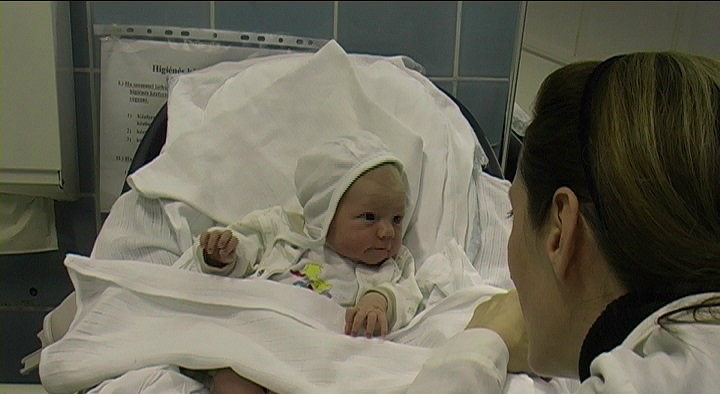Babies learn from day one, new study shows
Published On Thu 3 Aug 2017 by Grant Hill

Babies have the capacity to learn from social experiences in their first days of life, a new study from Psychology researchers at the University of Dundee has revealed.
The study, which involved more than 80 infants, demonstrated that they showed signs of learning from repeated social interactions even in their first two days. Researchers administered the `still face procedure’, a well-established technique where someone interacting with the child essentially freezes in the middle of the conversation and ignores them for a few minutes.
The babies became distressed (something that also happens in older infants), but when the process was repeated a day later, they showed clear signs of modifying their behaviour, as if learning from the previous experience.
“This research shows not only the impressive communicative sensitivity of the newborn infant but also that they have the ability to learn about social interactions from the earliest stage and to repair interactional errors,” said Dr Emese Nagy, Reader in Psychology in the School of Social Sciences at the University of Dundee.
“Such errors are a part of every normal communication, even with the best parent, so this ability of the newborn baby is very important. This also means that the newborn baby is not a passive recipient and reflexive respondent during communication but actively and proactively regulates its own social environment and contributes to the success of the interaction.”
Results of the research are published in the journal PLOS ONE. The paper can be found at http://journals.plos.org/plosone/article?id=10.1371/journal.pone.0181688.
Dr Nagy and her colleagues at Dundee and the University of Szeged in Hungary studied 84 newborn babies in Szeged. The babies were each given the two tests in the days immediately following their birth and their responses to the still face procedure were filmed and analysed frame-by-frame.
“A consistent response across the tests showed that babies are clearly distressed by the still-faced adult and their behaviour was not random,” continued Dr Nagy. “We also see the babies giving repeated, very quick glances to the other person, as if they are checking whether they have re-engaged in the conversation. By the second time, they re-engage with the adult sooner.
“We are not entirely sure how this happens but they are showing clear signs of learning from experience, even at this very early stage in life.”
Dr Nagy and colleagues have years of experience of research with infant children and have established one of the largest databases of perinatal behaviour in the world.
For media enquiries contact:
Grant Hill
Press Officer
University of Dundee
Nethergate, Dundee, DD1 4HN
Tel: +44 (0)1382 384768
Mobile: 07854 953277
Email: g.hill@dundee.ac.uk